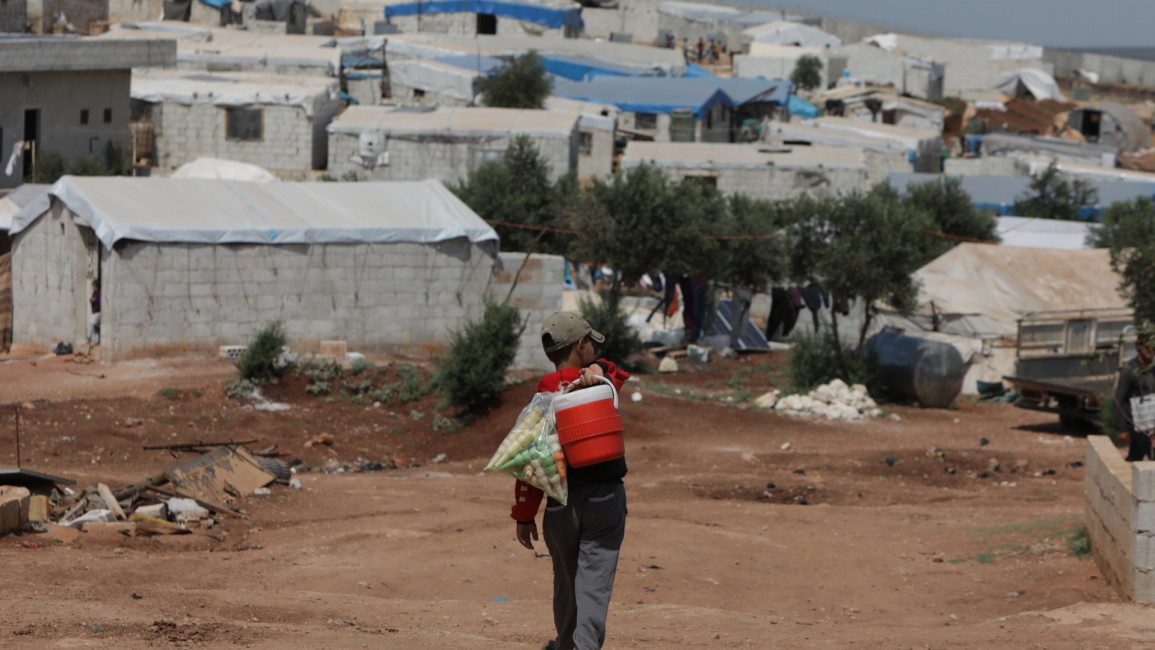Authorization for the transport of aid to war-torn Syria, a system in place since 2014, expired on Friday following the two countries' veto earlier in the day and the subsequent rejection of a counterproposal by Moscow.
Saturday's vote will be on a new draft text submitted overnight by Germany and Belgium, which would provide for a single aid access point into Syria.
German Foreign Minister Heiko Maas called in a tweet Saturday "on all delegations to no longer obstruct a compromise".
European countries and the US had wanted to maintain two crossing points on the Turkish border -- at Bab al-Salam, which leads to the Aleppo region, and Bab al-Hawa, which serves the Idlib region.
The latest draft measure calls only for the Bab al-Hawa crossing to be maintained "for a period of twelve months," according to a text obtained by AFP. The Council would also ask the UN secretary-general for a report "at least every 60 days".
UN authorization allows the international body to distribute aid to displaced Syrians without needing permission from Damascus.
But Russia and China argue that the authorization violates Syria's sovereignty, and that aid can increasingly be channeled through Syrian authorities.
Russia, Syria's closest ally, has for weeks argued that Bab al-Salam should be removed as an access point, particularly as it leads to the Aleppo region.
Bab al-Hawa, on the other hand, allows for aid to be funneled to nearly four million people in the insurgent Idlib region, which the Syrian regime does not control.
Multiple vetoes
Western member states reject Russia's arguments that authorization for cross-border aid violates Syrian sovereignty.
Those countries maintain that there is no credible alternative to the cross-border system and argue that Syrian bureaucracy and politics are preventing an effective flow of aid in areas not controlled by the Syrian regime.
The US has gone so far as to describe having two entry points as "a red line".
The 15 members of the Security Council have until midday Saturday to submit amendments to the latest text before the vote.
Russia has asked for two things - a mention of the impact of unilateral sanctions on Syria (an implicit jab at the United States and Europe), and a statement acknowledging improvements in aid delivery carried out under the Syrian regime.
However, those amendments have little chance of being adopted.
China, for its part, has called for an amendment highlighting the work of UN Secretary-General Antonio Guterres in the fight against the coronavirus pandemic, "in particular his appeal for an immediate global ceasefire".
Read also: Syria Insight: German court case sheds light on Assad's campaign of torture
In January, Moscow succeeded in having the crossing points reduced from four to two and in limiting the authorization to six months instead of a year.
This week Russia and China exercised their veto rights as permanent members twice - on Tuesday and Friday - even as NGOs and Western countries accused them of politicizing a humanitarian issue.
To be adopted, Saturday's draft text must get at least nine of the 15 votes, with none of the five permanent members voting against the measure.
Friday's vetoes by Moscow and Beijing marked the 16th for Russia and 10th for China on texts linked to Syria since the war began in 2011.
In a report in June, Guterres called for a one-year extension of the aid to include the two current access points.
Follow us on Facebook, Twitter and Instagram to stay connected


![President Pezeshkian has denounced Israel's attacks on Lebanon [Getty]](/sites/default/files/styles/image_684x385/public/2173482924.jpeg?h=a5f2f23a&itok=q3evVtko)



 Follow the Middle East's top stories in English at The New Arab on Google News
Follow the Middle East's top stories in English at The New Arab on Google News


